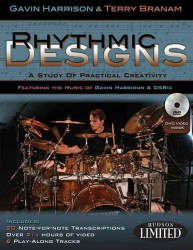- ホーム
- > 洋書
- > 英文書
- > Philosophy
Full Description
Movies hold a mirror up to us, portraying the complexities of human reality through their characters and stories. And they vividly illustrate moral theories that address questions about how we are to live and what sort of people we ought to be. In this book, Christopher Falzon uses movies to provide a rich survey of moral positions as they have emerged through history. These include the ethics of the ancient world, medieval ethics, Enlightenment and Kantian ethics, existentialist ethics and the ethics of the other. Each theory is explained in detail, using a number of examples from the book's wide selection of movies. The discussion draws on a range of recent and not-so-recent films, from Hollywood blockbusters to art-house cinema.
Key Features:
In addition to covering thinkers one would expect in an introduction to ethics (e.g., Plato, Aristotle, Kant), the book discusses less canonical figures in detail as well (e.g., Marcuse, Foucault, Habermas).
Similarly, the book examines both major ethical theories (e.g., Kantianism, utilitarianism, virtue ethics) and theories too often glossed over in introductory texts (e.g. Stoicism, Epicureanism, Habermas's discourse ethics and Nietzschean ethics).
A wide range of movies are discussed, from Hollywood blockbusters and classics like The Dark Knight, Casablanca and Dirty Harry to lesser known films, like Force Majeure and Under the Skin.
Atthe end of each chapter a focus on two feature films is included, with a plot summary and interpretations of several key scenes with a time marker indicating when in the film the scenes occur.
A Filmography includes all movies discussed in the book and a Glossary covers key philosophical terms and figures; both with corresponding page numbers.
Contents
Acknowledgements
Introduction - Rear Window Ethics
What is ethics?
Film as experimental
Exploring ethics through film
Chapter 1. Excess and obsession - Ancient ethics
Why be moral
Plato's moral theory
Aristotle and virtue ethics
Stoicism
Epicureanism
Feature films: Dr Jekyll and Mr Hyde, and Under the Skin
Chapter 2. Sin and self-denial: Religious ethics
Divine command
Augustine
Aquinas and natural law
The problem of evil
Feature films: Crimes and Misdemeanors, and The Addiction
Chapter 3. Pleasure, happiness and rights: Enlightenment ethics
Hobbes and the social contract
Enlightenment and happiness
Utilitarianism
Rights
The libertine and scientific morality
Feature films: Dirty Harry, and The Dark Knight
Chapter 4. Personhood and autonomy: Kantian ethics
Duty and desire
Persons
Autonomy
Marx
Habermas and discourse ethics
Feature films: High Noon, and No Country for Old Men
Chapter 5. Slaves, supermen and authentic selves: Existentialist ethics
Nietzsche
Kierkegaard
Twentieth-century existentialism: Sartre et al.
The social situation: de Beauvoir
Feature films: Rope, and Fight Club
Chapter 6. Encounters with aliens: Ethics and the other
The critique of 'traditional' ethics
The ethics of care
Levinas and the ethics of the other
Foucault, ethics and power
Experiments in living
Feature films: Casablanca, and Force Majeure
Filmography
Glossary
Bibliography
Index







